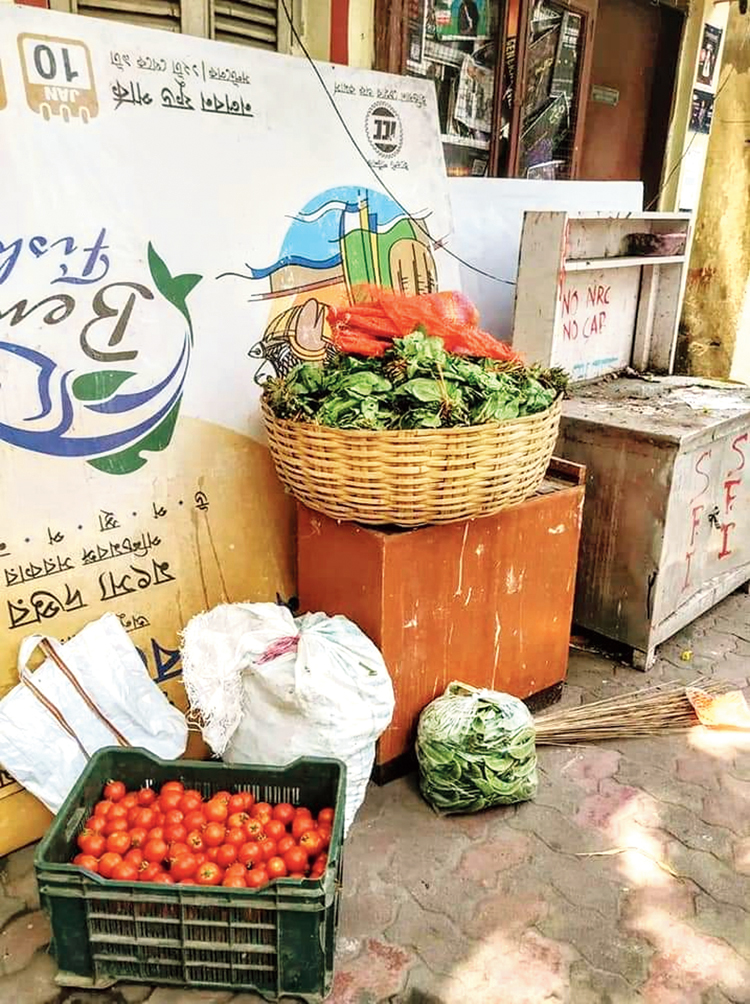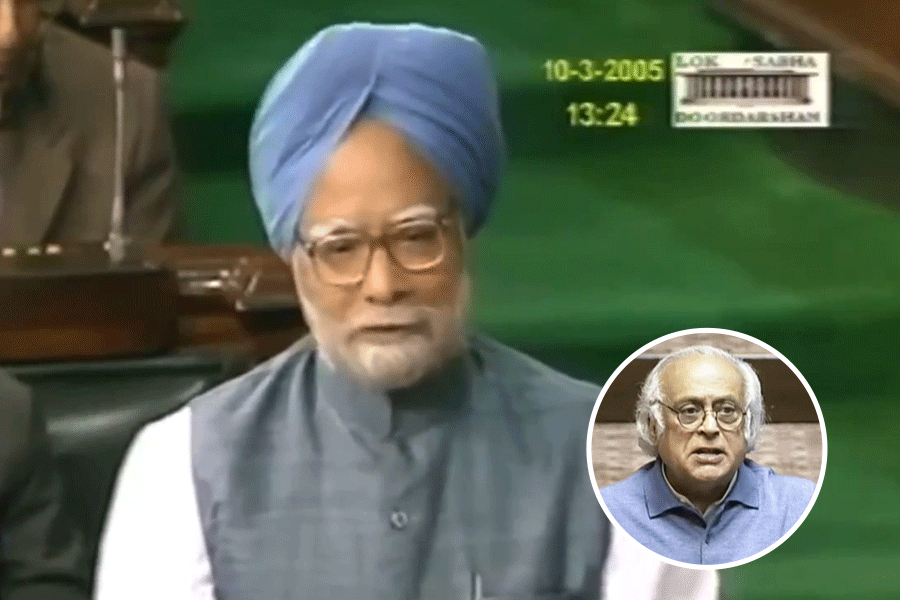Students of Jadavpur University who are running a community kitchen to feed the poor have set up a cooperative with farmers in Bhangar to get their unsold vegetables in exchange for rice and pulses.
The students started the community kitchen on the campus last month and set up a cooperative with farmers through a student of Presidency University who is from Bhangar in South 24-Parganas.
Bapan Ahmed, the third-year student of Bengali honours and a resident of Narayanpur in Bhangar, floated the idea when he saw vegetables going to waste because farmers could not supply them to markets during the lockdown.
“Farmers personally supply vegetables to wholesale markets and local markets beyond Narayanpur. The supply to wholesale markets has taken a hit for want of transport. Farmers are unable to carry stuff to markets outside Narayanpur because of the restrictions in place,” Ahmed said.
“Only a part of the produce is being sold at the local market. I knew about the JU community kitchen initiative.
So, I contacted them on behalf of 90 farmer families with the concept of setting up a cooperative.”
Farmers send their stock to the campus on a vehicle on which the JU students send a stock of rice and pulses. The exchange started last week.
The students have so far sent 150kg rice, 120kg pulses and 15kg soya beans in exchange.
The mechanism has proved advantageous because vegetables don’t have to be bought, Debjan Sengupta, a research scholar at JU, said. “Vegetables are costlier in markets because of middlemen. That money is being saved because of this arrangement with the farmers. The more we can save, the better for our ‘community kitchen’, which is being crowfunded.”
A JU student said it was important to save money because they wanted to feed as many as possible. “When we started the community kitchen, 150 people were being fed… now that number has gone up to 300.”
Sengupta said the students knew the farmers since 2018 when there was a movement against forcible land acquisition for the construction of a power substation in Bhangar. JU was part of the platform that had spearheaded the movement. “We have again reached out to each other during another crisis.”










